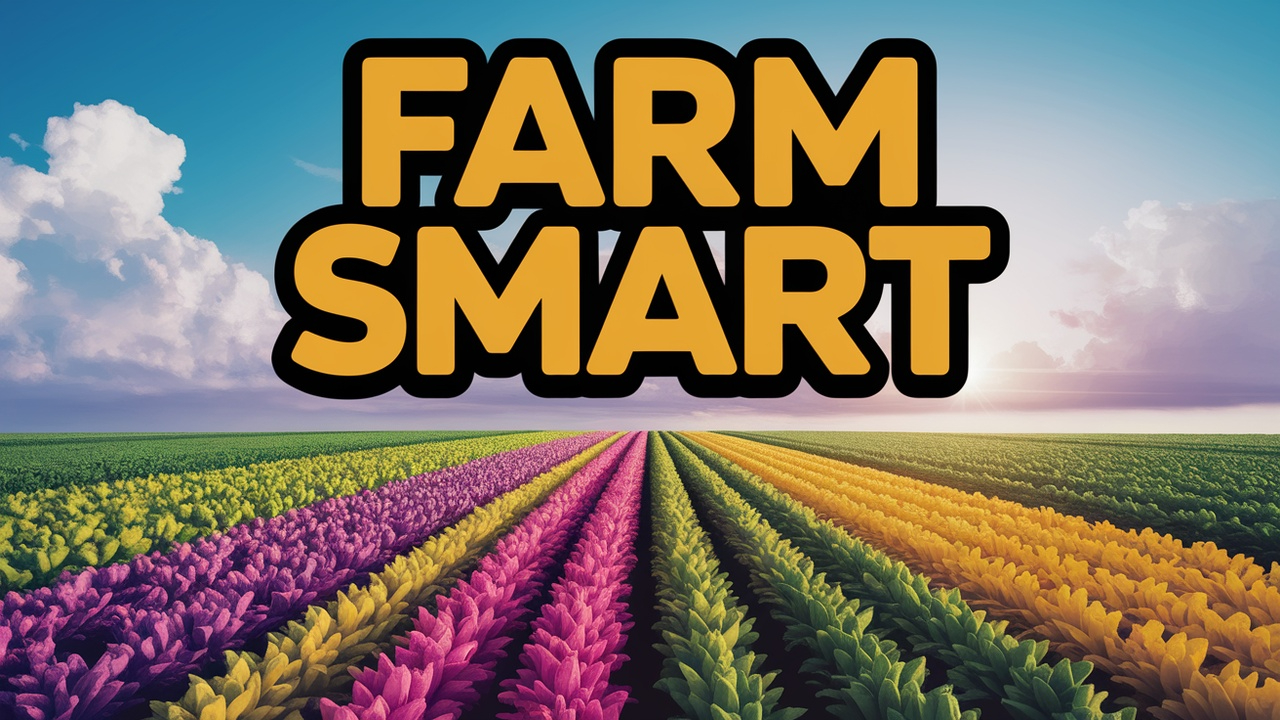
This comprehensive course explores the principles and techniques of sustainable farming. Participants will learn how to implement practices that conserve resources, enhance biodiversity, and promote ecological balance while ensuring economic viability.
Course Levels
-
Level 1: Introduction to Sustainable Farming
An overview of sustainable farming concepts, importance, and basic practices.
-
Level 2: Soil Health and Management
Focuses on the importance of soil health and techniques for sustainable soil management.
-
Level 3: Water Conservation and Management
Covers strategies for efficient water use and management in farming.
-
Level 4: Biodiversity and Pest Management
Examines the role of biodiversity in sustainable farming and integrated pest management strategies.
-
Level 5: Sustainable Crop Production
Explores sustainable practices for crop production including organic farming and agroecology.
-
Level 6: Livestock Management and Welfare
Focus on sustainable livestock practices and their importance in holistic farming systems.
-
Level 7: Sustainable Farming Technologies
Investigates innovative technologies that support sustainable agricultural practices.
-
Level 8: Community and Economic Sustainability
Discusses the socio-economic aspects of sustainable farming and community involvement.
-
Level 9: Climate Change and Sustainable Agriculture
Explores the impact of climate change on agriculture and strategies for adaptation and mitigation.
-
Level 10: Capstone Project - Implementing Sustainable Practices
A hands-on project where students apply learned sustainable practices to a real or simulated farming scenario.
Course Topics
-
Adapting Farming Practices to Climate Change
# Adapting Farming Practices to Climate Change Climate change poses significant challenges to agriculture, affecting crop yields, pest and disease dynamics, and water availability. This topic explore...
-
Community Supported Agriculture (CSA)
# Community Supported Agriculture (CSA) Community Supported Agriculture (CSA) represents a revolutionary approach to farming and food distribution that fosters a direct relationship between consumers...
-
Presenting Your Sustainable Farming Plan
# Presenting Your Sustainable Farming Plan Creating a sustainable farming plan is not just about implementing practices; it’s also about communicating your ideas effectively to stakeholders, includin...
-
Managing Water Quality in Agriculture
# Managing Water Quality in Agriculture Water quality is a critical factor in sustainable agriculture. It affects crop yield, soil health, and the overall ecosystem. This topic will cover the importa...
-
Understanding Soil Composition
# Understanding Soil Composition Soil is a complex ecosystem that serves as the foundation for agricultural practices. Understanding its composition is crucial for sustainable farming, as it directly...
-
Smart Farming Tools and Apps
# Smart Farming Tools and Apps ## Introduction Smart farming represents the integration of advanced technologies into agricultural practices. The evolution of tools and applications designed for farm...
-
Importance of Water Conservation
# Importance of Water Conservation Water is one of the most precious resources on our planet, essential for all forms of life, including agriculture, which significantly relies on water for crop prod...
-
What is Sustainable Farming?
# Understanding Sustainable Farming Sustainable farming, also known as sustainable agriculture, refers to farming practices that are designed to meet current food and textile needs without compromisi...
-
Sustainable Supply Chain Practices
# Sustainable Supply Chain Practices Sustainable supply chain practices are essential for ensuring that farming operations not only meet current demands but also protect the environment and promote s...
-
Animal Welfare and Ethics
# Animal Welfare and Ethics Animal welfare refers to the well-being of animals, encompassing their physical and mental states. Ethical considerations in animal welfare involve the moral obligations h...
-
Drip Irrigation vs. Traditional Methods
# Drip Irrigation vs. Traditional Methods ## Introduction Water is a vital resource in agriculture, and efficient management is crucial for sustainable farming practices. Two prominent irrigation met...
-
Crop Rotation and Cover Cropping
# Crop Rotation and Cover Cropping Crop rotation and cover cropping are essential practices in sustainable farming that enhance soil health, improve crop yields, and promote biodiversity. In this sec...
-
Biotechnology in Sustainable Farming
# Biotechnology in Sustainable Farming ## Introduction Biotechnology refers to the use of living organisms or their products to develop or create products, improve plants or animals, or develop micro...
-
Understanding Climate Change Effects on Agriculture
# Understanding Climate Change Effects on Agriculture Climate change represents one of the most significant challenges to global agriculture. This section will delve into the various ways climate cha...
-
Monitoring and Evaluation Methods
# Monitoring and Evaluation Methods in Sustainable Farming Practices Monitoring and evaluation (M&E) are critical components in implementing sustainable farming practices as they ensure the effective...
-
Economic Viability of Sustainable Practices
# Economic Viability of Sustainable Practices ## Introduction Sustainable farming practices are increasingly recognized not just for their environmental benefits but also for their economic viability...
-
Carbon Sequestration in Agriculture
# Carbon Sequestration in Agriculture ## Introduction Carbon sequestration is the process of capturing and storing atmospheric carbon dioxide (CO2) to mitigate climate change. In agriculture, this in...
-
Principles of Sustainable Livestock Farming
# Principles of Sustainable Livestock Farming Sustainable livestock farming is an approach that aims to meet the growing demand for animal products while minimizing environmental impact, improving an...
-
Sustainable Seed Selection
# Sustainable Seed Selection Sustainable seed selection is a critical component of sustainable crop production, focusing on choosing seeds that promote biodiversity, resilience, and ecological balanc...
-
Crop Diversity and Resilience
# Crop Diversity and Resilience ## Introduction Crop diversity refers to the variety of different crops cultivated in a particular area, including both the genetic variation within species and the v...
- And 30 more topics...